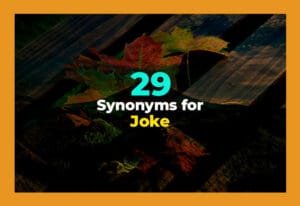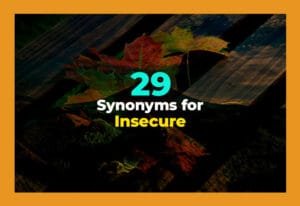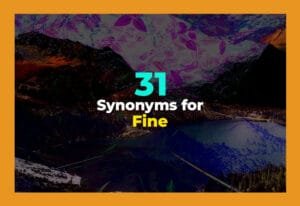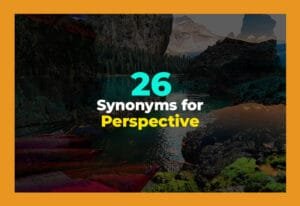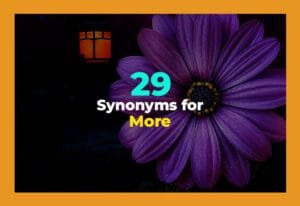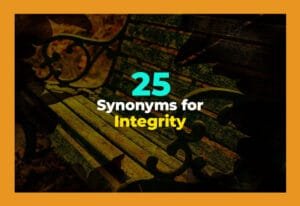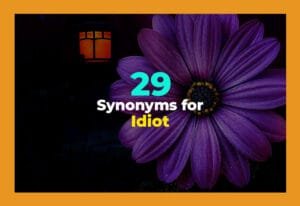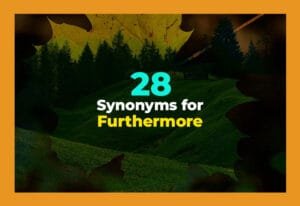Being curious means wanting to learn or know more about something. Many people are curious in different ways, such as being inquisitive, eager, or nosy. Curiosity helps us explore the world and gain new knowledge. In this article, we will look at 25 synonyms for curious, including inquisitive, interested, nosy, and questioning, with examples to help you understand each one.
| Synonym | Meaning | Example |
|---|---|---|
| Inquisitive | Wanting to learn a lot about something | She asked many questions because she was very inquisitive. |
| Interested | Showing attention or concern for something | He was interested in science experiments at school. |
| Nosy | Trying to find out about other people’s business | Her nosy neighbor always peeks through the window. |
| Inquiring | Asking questions to get more information | He wrote an inquiring email to learn more about the job. |
| Questioning | Showing doubt or wanting more knowledge | The student was questioning the teacher's explanation. |
| Probing | Looking for deeper understanding or hidden facts | The detective was probing the case carefully. |
| Investigative | Trying to find facts or study details | She had an investigative mind and liked research. |
| Prying | Trying to get information that is private | He was prying into her diary without permission. |
| Examining | Looking closely to understand something | The scientist was examining the new plant carefully. |
| Observant | Paying attention to details | The observant child noticed the bird's nest. |
| Analytical | Thinking carefully about details and reasons | She had an analytical mind and solved the puzzle easily. |
| Studious | Spending time learning or studying | The studious boy always read books after school. |
| Eager | Very excited to learn or know something | She was eager to see the new movie. |
| Attentive | Paying careful attention | The attentive student listened to every word. |
| Curious-minded | Always wanting to know more | The curious-minded girl asked many questions in class. |
| Speculative | Thinking about possibilities | He made a speculative guess about the ending of the story. |
| Searching | Looking for answers | The child was searching for hidden toys in the room. |
| Wondering | Thinking about something with interest | She was wondering why the sky was pink at sunset. |
| Intrigued | Very interested or fascinated | He was intrigued by the magician's tricks. |
| Investigatory | Related to examining or studying something | The investigatory report found new clues. |
| Fact-finding | Looking for facts or information | The journalist did fact-finding for the news story. |
| Analytical-minded | Likes to study details carefully | The analytical-minded engineer solved the problem quickly. |
| Questioning-minded | Likes to ask questions | The questioning-minded student always asked for reasons. |
| Observing | Watching carefully to understand | The child was observing the ants in the garden. |
| Learning-oriented | Focused on gaining knowledge | She was learning-oriented and loved school projects. |
25 Different Ways to Say CURIOUS: Another Word for CURIOUS
Inquisitive
Being inquisitive means always wanting to learn or know more. A person who is inquisitive asks many questions, explores ideas, and tries to understand how things work. This type of curiosity helps people discover new knowledge, solve problems, and think creatively. Inquisitive people are never afraid to explore topics they do not know. They often read books, research online, or ask questions to satisfy their curiosity.
- She was inquisitive about the history of her town.
- The inquisitive student always asked for extra lessons.
- He had an inquisitive mind and loved solving puzzles.
Interested
Interested means paying attention to or caring about something. When you are interested, you want to learn, experience, or understand something better. Being interested helps people focus, stay motivated, and enjoy learning. Interest can be small, like wanting to know about a hobby, or big, like learning a whole subject. It shows that a person values what they are exploring and wants to know more.
- He was interested in painting and joined art classes.
- She was interested in learning how computers work.
- The child was interested in watching the birds in the garden.
Nosy
Nosy describes someone who wants to know about other people's private matters. A nosy person asks questions or looks at things they should not. While curiosity is good, being nosy can bother others. It is important to balance curiosity and respect. Nosy behavior often comes from wanting information too much or not understanding boundaries.
- Her nosy neighbor always asked personal questions.
- The boy was nosy and peeked into everyone's room.
- He was too nosy about the family's secrets.
Inquiring
Inquiring means asking questions to get more knowledge or information. Inquiring people are careful to learn the correct facts and avoid misunderstanding. They like to ask politely and often take notes or record answers. Inquiring minds help in studies, research, or solving problems. This word shows curiosity in a respectful way.
- She sent an inquiring letter to learn about the course.
- The student was inquiring about the next school trip.
- He had an inquiring mind and always asked the teacher.
Questioning
Questioning means doubting or wanting more information. Questioning people do not accept things at face value. They try to understand the reasons behind ideas or actions. This curiosity helps in learning, problem-solving, and discovering the truth. Questioning is important in science, learning, and daily life decisions.
- The child was questioning why the sky is blue.
- She was questioning the rules at school.
- He had a questioning mind about the story's ending.
Probing
Probing means trying to get deeper understanding or find hidden facts. Probing minds do not stop at surface answers. They ask "why" or "how" and investigate further. Probing curiosity is useful in research, studying, and solving mysteries. It helps people learn detailed information carefully and thoughtfully.
- The detective was probing the case for clues.
- She was probing the new problem at work.
- He kept probing to find the truth about the experiment.
Investigative
Investigative describes someone who studies or searches for facts. Investigative people look for details and verify information. This type of curiosity helps in research, journalism, and science. Being investigative shows interest in learning real information rather than accepting guesses.
- She had an investigative mind and checked the facts.
- The journalist used investigative skills to write the story.
- He was investigative and looked for hidden clues.
Prying
Prying means trying to find information that is private. Prying people ask questions or observe closely, often when it is not polite. While prying is curiosity, it can annoy others. Sometimes prying can be helpful in learning, but it is important to respect boundaries.
- He was prying into his friend's diary.
- She kept prying about her neighbor's activities.
- The child was prying to see what was inside the box.
Examining
Examining means looking closely to understand or study something. People who examine notice details, patterns, and small differences. This curiosity helps in learning, analyzing, and solving problems. Examining is often used in science, school work, and everyday tasks.
- The scientist was examining the new plant species.
- She was examining the painting carefully.
- He examined the instructions before starting the project.
Observant
Observant means noticing small details and changes. Observant people see things others may miss. This curiosity helps in learning, understanding, and solving problems. Observant people remember information, watch carefully, and are alert to their surroundings.
- The observant child noticed the bird building a nest.
- She was observant and saw the small error in the paper.
- He was observant of everyone's actions in the room.
Analytical
Analytical means thinking carefully about details and reasons. Analytical people study facts, compare ideas, and make careful decisions. This curiosity helps in understanding problems and finding solutions. Analytical thinking is helpful in learning, work, and daily life.
- She had an analytical mind and solved the puzzle easily.
- The engineer was analytical in checking the design.
- He analyzed the problem using analytical skills.
Studious
Studious means spending time learning and reading. Studious people enjoy learning, practicing, and improving skills. This curiosity helps in school, career, and hobbies. Studious people focus on learning and value knowledge.
- The studious boy always read after school.
- She was studious and completed every assignment on time.
- He became successful because of his studious habits.
Eager
Eager means being very excited to know or learn something. Eager people cannot wait to explore or experience new things. This curiosity helps people grow, discover, and enjoy life. Being eager shows motivation and interest in learning.
- She was eager to see the new movie.
- He was eager to learn how to cook.
- The child was eager to play with the new toy.
Attentive
Attentive means paying careful attention. Attentive people notice details and do not miss important information. This curiosity helps in learning, work, and daily life. Being attentive shows respect, focus, and interest in the topic.
- The attentive student listened to every word of the lesson.
- She was attentive to the instructions.
- He was attentive to the needs of others.
Curious-minded
Curious-minded describes someone who always wants to know more. Curious-minded people explore ideas, ask questions, and seek knowledge. This curiosity helps in learning, growing, and discovering new things. They never stop wondering and learning.
- The curious-minded girl asked many questions in class.
- He was curious-minded and explored new hobbies.
- She had a curious-minded approach to solving problems.
Speculative
Speculative means thinking about possibilities and ideas. Speculative people are curious about outcomes, theories, or reasons. This curiosity helps in imagining, planning, and making predictions. Being speculative allows people to think creatively and explore different options.
- He made a speculative guess about the story's ending.
- She was speculative about the new plan.
- They were speculative about the experiment results.
Searching
Searching means looking for answers or information. Searching people are curious and actively seek knowledge. This curiosity helps in learning, solving problems, and finding hidden details. Being searching shows determination to discover and understand.
- The child was searching for hidden toys.
- He was searching for solutions to the problem.
- She was searching for new information online.
Wondering
Wondering means thinking about something with interest. Wondering people are curious and ask questions in their minds. This curiosity helps in exploring ideas and understanding the world. Wondering leads to learning, discovering, and imagining new possibilities.
- She was wondering why the sky was pink at sunset.
- He was wondering about the story's ending.
- The child was wondering how birds fly.
Intrigued
Intrigued means being very interested or fascinated. Intrigued people want to know more because something is unusual, exciting, or mysterious. This curiosity helps in learning, exploring, and understanding new things. Being intrigued motivates people to pay attention and discover details.
- He was intrigued by the magician's tricks.
- She was intrigued by the new book.
- The students were intrigued by the science experiment.
Investigatory
Investigatory means related to examining or studying something. Investigatory people are curious and carefully study details. This curiosity helps in research, learning, and discovering facts. Being investigatory shows focus, interest, and attention to detail.
- The investigatory report found new clues.
- She did an investigatory study on plants.
- He used investigatory skills to solve the problem.
Fact-finding
Fact-finding means looking for true information or details. Fact-finding people are curious and careful to learn facts. This curiosity helps in understanding reality, solving problems, and making decisions. Being fact-finding shows patience, interest, and careful study.
- The journalist did fact-finding for the news story.
- He was fact-finding about the company's history.
- She was fact-finding to write her report.
Analytical-minded
Analytical-minded means liking to study details carefully. Analytical-minded people are curious and want to understand how things work. This curiosity helps in problem-solving, learning, and making decisions. Being analytical-minded shows thoughtfulness and interest in knowledge.
- The analytical-minded engineer solved the problem quickly.
- She was analytical-minded and studied the issue carefully.
- He was analytical-minded about his experiments.
Questioning-minded
Questioning-minded means liking to ask questions and understand reasons. Questioning-minded people are curious and never stop learning. This curiosity helps in studies, problem-solving, and thinking critically. Being questioning-minded shows interest, focus, and active learning.
- The questioning-minded student always asked for reasons.
- She was questioning-minded about the new policy.
- He had a questioning-minded approach to every project.
Observing
Observing means watching carefully to understand things. Observing people are curious and notice details. This curiosity helps in learning, understanding, and solving problems. Being observing shows alertness, patience, and interest in surroundings.
- The child was observing the ants in the garden.
- He was observing the teacher's instructions closely.
- She was observing the painting to learn colors.
Learning-oriented
Learning-oriented means focusing on gaining knowledge. Learning-oriented people are curious and enjoy discovering new things. This curiosity helps in school, career, and personal growth. Being learning-oriented shows motivation, interest, and dedication to improving knowledge.
- She was learning-oriented and loved school projects.
- He was learning-oriented and always read books.
- The student was learning-oriented and asked many questions.
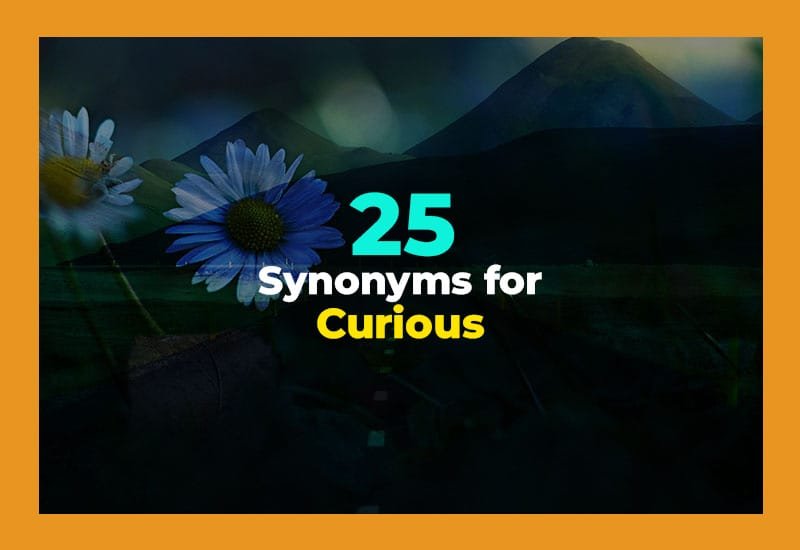
Final Thoughts
Curiosity makes life interesting and helps us grow. Using different ways to describe curiosity can improve your writing and communication. Exploring these synonyms encourages learning, questioning, and discovery every day.

